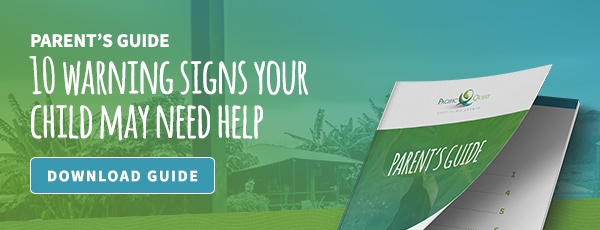As many parents with teens know, staying close to a child during those formative years can be quite the feat. No matter what you do, your behavior seems to annoy, embarrass or even anger them to the point of no return. Understanding the teenage psyche can be daunting to the point of hopelessness. When it seems as if whatever action you take is the wrong one, the frustration becomes palpable.
Coupled with the knowledge that this is one of the most crucial times in an adolescent’s development, making any parenting choice can be simply terrifying. Unfortunately, the science seems to confirm many of these fears. In 2005, the National Youth Risk Behavior Survey (YRBS) found that teens are more likely to “engage in behaviors that increase their likelihood of death or illness by driving a vehicle after drinking or without a seat belt, carrying weapons, using illegal substances, and engaging in unprotected sex resulting in unintended pregnancies and STDs, including HIV infection.” With this in mind, it’s good to know what behaviors may drive your teen even further from you.
Trying to Know It All
Advice to parents with teenagers: privacy is a sacred and defining concept. For the first time in their lives, teens are trying to form an image of themselves not directly tied to their parents. This creates the natural instinct to diverge from you as a parent, and understandably it can be hard to feel your child pull away. The hardest part for a parent in this situation is to allow and respect a healthy and manageable amount of privacy while at the same time maintaining a guiding and protecting support system for your teen. Setting firm guidelines while allowing reasonable privacy eases tensions during this crucial change.
Being a Social Media Clinger
As of 2012, 95 percent of American teens were “online” in one form or another, according to The Pew Research Center’s Internet & American Life Survey. Social media has become the new high school hallway where gossip and egos form and interact. For a teen, a parent trying to insert themselves into this arena is akin to standing in the high school hallway and eavesdropping on your teen’s actual conversations. Not having space to grow and find themselves will undoubtedly push them further away.
Dismissing Their Opinions
According to the National Institute of Health, “In terms of sheer intellectual power, the brain of an adolescent is a match for an adult’s. The capacity of a person to learn will never be greater than during adolescence.” Though teens opinions may be under-informed in terms of life experience, the mechanisms by which they come to these conclusions are most likely sound in their own minds. Feeling that their opinions matter to an adult/parent validates individuality. To foster this, many families opt for alternative development programs, such as wilderness therapy. This form of treatment guides teens toward self-reliance and fosters independence, patience, and assertiveness.
Ignoring your Instincts as a Parent
All in all, no one knows your teen as well as you. Parenting books and articles can be great guides, but your instincts as a parent shouldn’t be overlooked. Think outside the box when trying to connect (i.e. taking a class together) or explore adventure-based techniques, such as wilderness therapy.
Being afraid of making a parenting mistake with insurmountable consequences can feel paralyzing, and we completely understand. That’s why we have a staff of clinical professionals to help your teen stay on, or return to, the right track. If you’re interested in learning more about Wilderness Therapy at Pacific Quest, we’re here to talk. Please feel free to call us at 808.937.5806 anytime.
